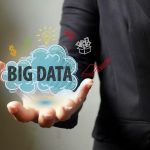The European Union (EU) is taking a firm stance on protecting the privacy of its citizens, as evidenced by its recent landmark privacy law. This EU privacy policy for big tech companies is set to take effect soon and is aimed at bringing greater accountability and transparency to how big tech collects, stores, and uses personal data. With this EU privacy law, the power of big … [Read more...] about The EU is Cracking Down on Big Tech’s Privacy Practices
Big Data
Learn everything you need to know about big data. Find out how companies are using this revolutionary technology and what it means for your business strategy.
What is Data Masking, and How to Implement It the Right Way
Fines related to sensitive data exposure are growing. For instance, major GDPR violations can cost companies up to 4% of their annual global turnover, while gross HIPAA violations can result in imprisonment. Your production environment might be thoroughly protected. But what is about testing initiatives and sales demos? Are you confident in the third-party contractors that have … [Read more...] about What is Data Masking, and How to Implement It the Right Way
Unlocking the Massive Benefits of Big Data in Digital Marketing
We live in the digital age where we have has access to billions of records at the touch of our fingerprints. Big data has seriously disrupted many industries, including digital marketing. Therefore, it is no surprise that the market for big data is projected to reach $273 billion by 2026. The marketing sector is among those most affected by advnaces in data analytics and data … [Read more...] about Unlocking the Massive Benefits of Big Data in Digital Marketing
Enhance Your Business Continuity with Hyper-V
In the era of numerous data threats and power outages, businesses go the extra mile to guarantee the continuity of their operations. Such precautions are vital for business survival and vitality as the longer the disruption in operation takes, the worse the chances for recovery are. The term "business continuity" thus acquires a strategic sense in the discussion of data backup … [Read more...] about Enhance Your Business Continuity with Hyper-V
How to Build Data Products Your Company Will Actually Use
Across both public and private sectors, more organizations are adopting a "data-driven" mindset-or, at least, data-driven messaging. But in reality, most aren't prepared for the reality of what it takes to truly make decisions based on data. Teams have to be aligned about what data is used and how decisions are made. Data has to be accessible and available to the right … [Read more...] about How to Build Data Products Your Company Will Actually Use
What is big data?
Big data is a term that refers to the massive amount of digital data created and shared every day. Big data can transform how we live, work, and communicate. It can be used to improve everything from public health and urban planning to business and marketing.
Big data is also changing the way we think about privacy and security. The volume, velocity, and variety of big data present challenges and opportunities for organizations and individuals. Regardless, big data is here to stay, and its impact will only continue to grow in the years to come.
What is big data analytics?
Big data analytics is the process of turning large, complex data sets into actionable insights. Businesses use various analytical tools and techniques, including machine learning and statistical analysis, to do this.
Big data analytics can be used to improve decision-making in areas like marketing, operations, and customer service. It can also be used to identify new business opportunities and optimize existing processes. With the help of big data analysis, businesses can gain a competitive edge by using their data better.
Want to learn more about big data? Datafloq has courses available. Contact us to get started.
When was big data introduced?
The term big data was coined in the 1990s, with some giving credit to John Mashey for popularizing the term. However, the concept of big data has been around for much longer.
Where does big data come from?
In the early days of computing, scientists and businesses began to realize that the amount of data being generated was increasing exponentially. As a result, they began to develop new methods for storing and processing data.
Over time, these methods have become increasingly sophisticated and have played a key role in enabling businesses to make sense of vast amounts of information. Today, big data is used in various industries, from retail to healthcare, and its importance is only likely to grow in the years to come.
What are examples of big data?
One of the most common examples of big data is social media data. With over 2 billion active users, Facebook generates a huge amount of data every day. This includes information on user interactions, posts, and even location data. Analyzing this data can help companies better understand their customers and target their marketing efforts.
Another example of big data is GPS signals. These signals are constantly being generated by devices like cell phones and fitness trackers. When combined with other data sets, GPS signals can be used to provide insights into everything from traffic patterns to human behavior. Finally, weather patterns are another type of big data set. By tracking these patterns over time, scientists can better understand the impact of climate change and develop strategies for mitigating its effects.
How do companies use big data?
Companies use big data in marketing, product development, and customer service. By analyzing large data sets, businesses can identify patterns and trends that would be otherwise difficult to spot. For example, a company might use big data to track customer behavior patterns to improve its marketing efforts.
Alternatively, a company might use big data to improve its products by identifying areas where customers are most likely to experience problems. For instance, big data can be used to improve customer service by finding pain points in the customer journey. Ultimately, big data provides companies with a valuable tool for gaining insights into their business operations.







